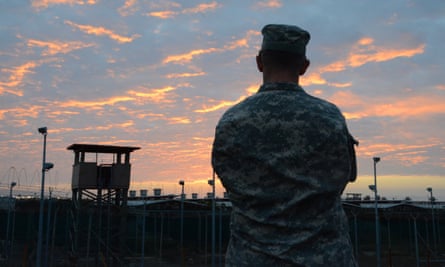Has Anyone Read the Books to the Continuing Saga of Home Fires
I n Sophocles's play Antigone a teenage girl is forced to choose between obeying the law of the land (her uncle, the king of Thebes, has forbidden the burial of a traitor) and religious law (the traitor is Antigone's brother, Polynices, who has declared war on his city, and killed his own brother, Eteocles, along the way). Antigone's "good" brother gets a funeral, the "bad" one is left to rot. Leaving a relative unburied is profoundly taboo in ancient Greece, so Antigone must decide: does she obey her conscience and bury Polynices – the punishment for which is the death penalty – or does she obey the law and leave her brother to be picked apart by dogs?
And this, essentially, is the dilemma faced by Aneeka, the beating heart of Home Fire, Kamila Shamsie's Man Booker-longlisted loose contemporary reworking of Antigone. Her twin brother, Parvaiz, has left London to work for the media arm of Isis, after discovering that his absent father died en route to Guantánamo. Her sister Isma tells the police where he has gone and Aneeka is appalled: "You betrayed us, both of us. And then you tried to hide it from me. Don't call, don't text, don't send the pictures, don't fly across the ocean and expect me to ever agree to see your face again. We have no sister." It is a beautifully Sophoclean touch that Aneeka is far angrier with her sister for betraying their brother than she is with her brother for betraying them both.
The build-up to disaster is told with an ever-increasing tension. We begin with Isma, the older sister to the twins, the voice of compromise and accommodation. Her wry cleverness is so compelling that it is difficult not to pine for her in the later stages of the novel, from which she is largely absent (Ismene, in Sophocles's version of the myth, has only a paltry 60 lines). When Isma first meets Eamonn, the non-religious son of an authoritarian British home secretary who has sought to put his Muslim faith behind him, she is studying in the US and he is there on holiday. "Is that a style thing or a Muslim thing?" he asks, about the turban she wears. "You know," she replies, "the only two people in Massachusetts who have ever asked me about it both wanted to know if it's a style thing or a chemo thing."
There is an undeniable connection between Isma and Eamonn. But on his return to London, he falls for her sister Aneeka, who sees him as a possible ticket home for her lost brother. She is unrepentant for the way she trades on him: "I wanted Eamonn to want to do anything for me before I asked him to do something for my brother. Why shouldn't I admit it? What would you stop at to help the people you love most?"
In some ways, Shamsie owes a greater debt to Jean Anouilh's adaptation of Antigone than to the Sophoclean version: for Sophocles, Antigone is the older sister, who acts as she does because she is an extremist. But she is also filled with piety. If Sophocles's play has a simple message, it is that older generations do not always know better than their children, and that religious duty trumps our obligations to civil society. To put it in terms of a philosophical debate that was much discussed in Athens at the time the play was first performed, phusis – natural law – is more important than nomos – man-made law.

But Anouilh, writing during the second world war, saw things differently. He reversed the birth order of the two sisters: for him, Antigone was not the dutiful older sister, but rather the young rebel. And in Home Fire, Isma is much older. "She's my sister," she says of Aneeka. "Almost my child." This blurring of roles is a neat modern echo of the troubled bloodline of Antigone and Ismene, whose parents were Oedipus – also their half-brother – and Jocasta, who was both their mother and grandmother.
It is in this move away from the earliest incarnations of the myth that Shamsie's novel is most successful: she drops the incestuous nature of the children's parentage, and ditches the second brother, so that Parvaiz is guilty of all kinds of things, but not fratricide. This costs her something in the ambivalence the reader must feel about Parvaiz and correspondingly reduces some of the potency of Aneeka's sacrifice. But it grounds the novel in the here and now, rather than allowing it to slide into melodrama, an undeniable risk with tragedy-turned-fiction – although it perhaps contributes to the novel's slightly frustrating conclusion.
Shamsie's prose is, as always, elegant and evocative. Home Fire pulls off a fine balancing act: it is a powerful exploration of the clash between society, family and faith in the modern world, while tipping its hat to the same dilemma in the ancient one.
Natalie Haynes's The Children of Jocasta is published by Mantle.
Home Fire is published by Bloomsbury. To order a copy for £14.44 (RRP £16.99) go to bookshop.theguardian.com or call 0330 333 6846. Free UK p&p over £10, online orders only. Phone orders min p&p of £1.99.
Source: https://www.theguardian.com/books/2017/aug/10/home-fire-kamila-shamsie-review
0 Response to "Has Anyone Read the Books to the Continuing Saga of Home Fires"
Publicar un comentario